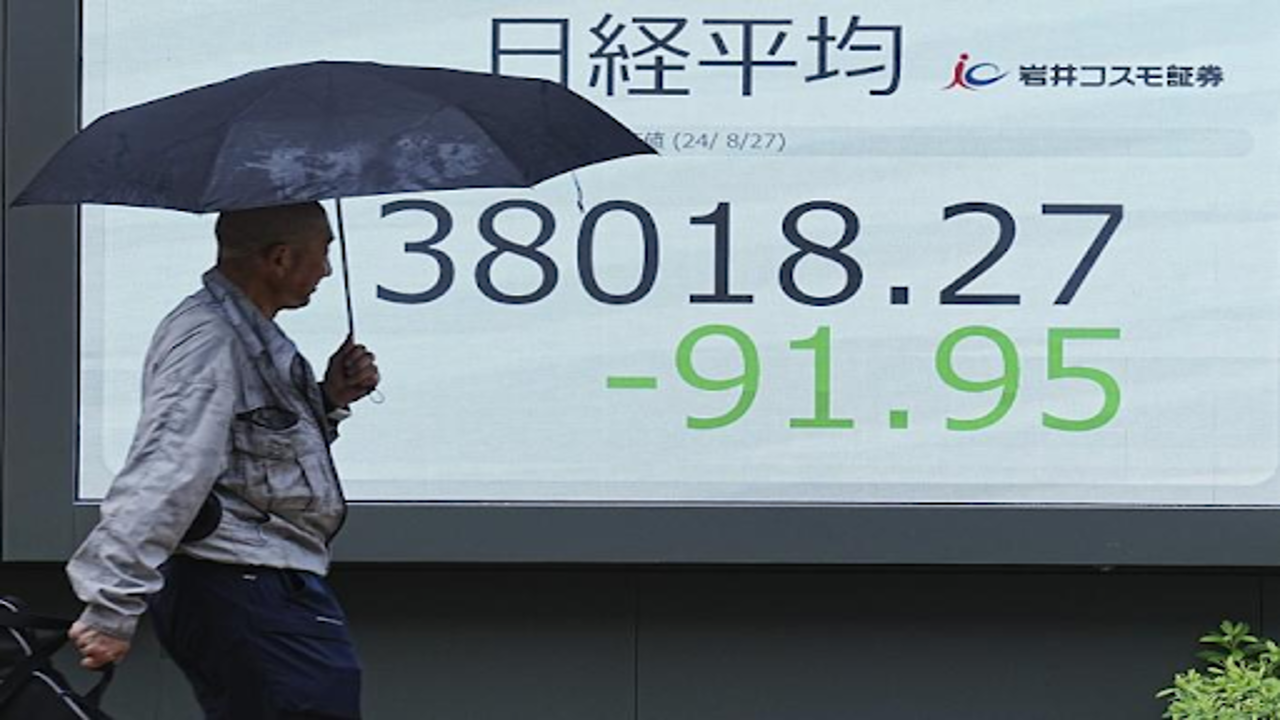
Asian stocks dropped as declines in major U.S. tech companies caused both the S&P 500 and Nasdaq to fall.
Asian stocks took a hit on Tuesday following a mixed outcome on Wall Street. While the Dow Jones Industrial Average reached an all-time high, major tech companies dragged down both the S&P 500 and the Nasdaq composite.
U.S. futures declined, and oil prices retreated from recent highs, which were driven by tensions between Israel and Hezbollah over the weekend.
China brought some positive news with a 4.1% rise in industrial profits in July compared to the previous year, and overall profits for the first seven months climbed by 3.6%. However, the optimism was tempered by the impact of new tariffs. Canada announced a 100% tariff on imported Chinese electric vehicles and a 25% tariff on Chinese steel and aluminum. These tariffs, taking effect on October 1st, will affect all-electric vehicles shipped from China, including Tesla models produced there. Consequently, Tesla's U.S.-listed shares dropped by 3.2% on Monday.
In Asian markets, Hong Kong’s Hang Seng index fell by 0.2% to 17,760.40, while the Shanghai Composite index dipped 0.3% to 2,846.19. Japan’s Nikkei 225 edged down 0.1% to 38,055.62. Similarly, Australia’s S&P/ASX 200 declined by 0.1% to 8,077.50, and South Korea’s Kospi lost 0.4%, closing at 2,687.43.
In the U.S., the S&P 500 saw a 0.3% decline on Monday, staying close to its July record, while the Nasdaq dropped by 0.9%. Several major technology stocks contributed to the Nasdaq's decline, including Nvidia, which fell by 2.2%, Microsoft by 0.8%, Amazon by 0.9%, Meta Platforms by 1.3%, and Tesla by 3.2%.
Meanwhile, the Dow rose by 0.2% to 41,240, hitting a new high after surpassing its mid-July peak. The Dow is less influenced by the big tech sector, which helped it stay afloat despite the tech decline. Among the so-called "Magnificent Seven" stocks, only Apple and Microsoft are part of the Dow.
Bond yields remained stable, with the yield on the 10-year Treasury rising slightly from 3.80% to 3.82%. Despite the stock market's recent two-week winning streak, Monday's mixed performance signalled caution as investors entered a week packed with corporate earnings reports and awaited the government's latest inflation data.
A surprisingly positive report showed that U.S. factory orders for durable goods, including cars, surged by 9.9% in July. Investors are now awaiting Tuesday's consumer confidence report and a revised estimate of economic growth for the second quarter on Thursday.
One of the most anticipated earnings reports will come from Nvidia on Wednesday. The semiconductor giant has been a big winner in the artificial intelligence boom, boosting its stock by over 155% this year. However, Nvidia's stock slipped ahead of its earnings report, and other chipmakers also took a hit. Broadcom fell by 4.1%, Advanced Micro Devices dropped 3.2%, and Lam Research lost 3.4%.
By the end of Monday's trading, the S&P 500 had dropped 17.77 points to close at 5,616.84. The Dow added 65.44 points, finishing at 41,240.52, while the Nasdaq fell by 152.03 points, ending the day at 17,725.76.
As the week unfolds, more companies are set to release their quarterly results, including Kohl’s, Chewy, Salesforce, and Dollar General. Investors will also be closely watching for the government’s latest inflation data, particularly the personal consumption and expenditures (PCE) report, which is the Federal Reserve's preferred inflation gauge.
In energy markets, U.S. crude oil prices dropped by 30 cents to $77.12 per barrel, while Brent Crude, the global benchmark, slid by 25 cents to $80.11 per barrel.
In currency markets, the U.S. dollar strengthened against the Japanese yen, rising to 144.91 yen from 144.52 yen. Meanwhile, the euro increased slightly, costing $1.1166, up from $1.1161.















